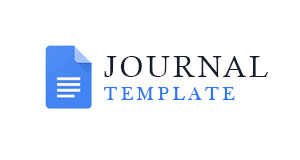Effect Of Debt-To-Asset And Return On Equity Ratio On Going Concern Opinions
Abstract
This study aims to analyze the effect of the debt-to-asset ratio (DAR) and return on equity (ROE) on the issuance of going concern audit opinions, both partially and simultaneously. The study adopts a quantitative approach with a causal-comparative design. The research sample consists of 11 energy sector companies listed on the Indonesia Stock Exchange from 2013 to 2022, selected through purposive sampling from a population of 82 companies. Data were analyzed using binary logistic regression with the help of Eviews 12 software. The results show that DAR has a positive and significant partial effect on going concern audit opinion, indicating that higher debt levels increase the likelihood of receiving such an opinion. In contrast, ROE has no significant partial effect, suggesting that profitability does not significantly influence auditors' judgments regarding going concern in this sector. However, DAR and ROE jointly (simultaneously) have a significant positive effect on going concern audit opinions, implying the importance of evaluating financial risk and performance collectively. The model’s McFadden R-square value is 21.7%, indicating a moderate explanatory power where the variables studied account for about one-fifth of the variation in going concern audit opinion issuance. The remaining 78.3% is influenced by other factors not included in the model. This study contributes to the auditing literature by focusing specifically on the underexplored energy sector in Indonesia and provides insights into how financial risk indicators can inform auditors’ assessments. The findings emphasize the need for auditors and stakeholders to consider a broader range of financial indicators in evaluating a firm's going concern status
Keywords
Full Text:
PDFReferences
Aisyah, S., & dkk. (2023). Akuntan Publik: Audit Laporan Kuangan. Get Press Indonesia.
Algifari. (2021). Pengolahan Data Panel Untuk Penelitian Bisnis dan Ekonomi Dengan Eviews 11. Unit Penerbit dan Percetakan STIM YKPN.
Amalia, R., Hafizi, M. R., & Mubarok, A. (2024). Pengaruh Penerapan Green Accounting Dan Kinerja Lingkungan Terhadap Profitabilitas Pada Perusahaan Pertambangan Yang Terdaftar Di Bursa Efek Indonesia. Accounting Journal of Ibrahimy (AJI), 2(1), 22–37. https://doi.org/10.35316/aji.v2i1.4747
Andriyana, D. (2020). Konsep Utang Dalam Syariat Islam. Jurnal Al-Fatih Global Mulia, 2(2). https://doi.org/10.59729/alfatih.v2i2.22
Anggraini, N., Pusparini, H., & Hudaya, R. (2021). Pengaruh Profitabilitas, Likuiditas, dan Solvabilitas Terhadap Opini Audit Going Concern. Jurnal Aplikasi Akuntansi, 6(1), 24–55. https://doi.org/10.29303/jaa.v6i1.106
Berliani, A. (2021). Faktor-Faktor Yang Mempengaruhi Opini Audit Going Concern. Karya Riset Mahasiswa Akuntansi, 01(01).
Endiana, I. D. M., & Suryandari, N. N. A. (2021). Opini Going Concern: Ditinjau Dari Agensi Teori dan Pemicunya. Jurnal Ekonomi Dan Keuangan, 05(01).
Ginting, W. A. (2018). Analisis Faktor-Faktor yang Mempengaruhi Opini Audit Going Concern. Jurnal REKSA: Rekayasa Keuangan, Syariah Dan Audit, 5(1). https://doi.org/10.12928/j.reksa.v5i1.158
Hantono. (2018). Konsep Analisis Laporan Keuangan dengan Pendekatan Rasio dan SPSS. Cv. Budi Utama.
Haryanto, Y. A., & Sudarno. (2019). Pengaruh Profitabilitas, Solvabilitas, Likuiditas, Dan Rasio Pasar Terhadap Opini Audit Going Concern Pada Perusahaan Manufaktur Di Bursa Efek Indonesia. Diponegoro Journal Of Accounting, 08(04).
Hery. (2019). Auditing Dasar-Dasar Pemeriksaan Akuntansi. Grasindo.
Indira, A., & dkk. (2023). Analisis Perbandingan Kesehatan Perusahaan ditinjau dari Rasio Keuangan Sebelum dan Selama Pandemi COVID-19. Jurnal Ilmiah Ilmu Manajemen Dan Kewirausahaan, 03(01). https://doi.org/https://doi.org/10.46306/vls.v3i1.173
Indrastiti, N. (2019). Mulai Cetak Laba, Defisit Saldo Darma Henwa (DEWA) Menyusut. Businessinsight.
Jensen, M. C., & Meckling, W. H. (1976). Theory of the Firm: Managerial Behaviour, Agency Costs and Ownership Structure. Journal of Financial Economics, 03(04).
Junaidi, & Nurdiono. (2016). Kualitas Audit Perspektif Opini Going Concern. CV. Andi Offset.
Kasmir. (2019). Analisi Laporan Keuangan. PT. Rajagrafindo Persada.
Laporan Keuangan dan Tahunan. (n.d.). PT. Bursa Efek Indonesia.
Lowensky, M. (2020). Analisis Pengaruh Pertumbuhan Perusahaan, Return On Equity dan Debt To Total Assets Terhadap Pemberian Opini Audit Going Concern Pada Perusahaan Sektor Industri Dasar dan Kimia Di Bursa Efek Indonesia. Jurnal FinAcc, 05(01).
Meilinda, & dkk. (2021). Analisis Pengaruh Rasio Keuangan Terhadap Pemberian Opini Audit Going Concern Pada Perusahaan Penambangan Sub-Sektor Produksi Minyak Mentah Dan Gas Alam Yang Terdaftar Di Bei. Jurnal Akuntansi Bisnis Dan Keuangan, 08(01).
Milany, L. (2022). Pengaruh Opini Audit Tahun Sebelumnya, Disclousure Likuiditas, Leverage, dan Financial Distress Terhadap Opini Audit Going Concern. Universitas Islam Negeri Sultan Syarif Kasim Riau.
Minerva, L., Sumeisey, V. S., Stefani, S., Wijaya, S., & Lim, C. A. (2020). Pengaruh Kualitas Audit, Debt Ratio, Ukuran Perusahaan dan Audit Lag terhadap Opini Audit Going Concern. Owner, 4(1), 254. https://doi.org/10.33395/owner.v4i1.180
Octavianty, R. P., Rafki Nazar, M., & Aminah, W. (2023). Pengaruh Rasio Keuangan Terhadap Penerimaan Opini Audit Going Concern (Studi pada Perusahaan Subsektor Makanan dan Minuman yang Terdaftar di Bursa Efek Indonesia (BEI) Periode 2018-2020). E-Proceeding of Management, 10(2), 1402.
Pravasanti, Y. A. (2017). RASIO KEUANGAN : PEMBERIAN OPINI AUDIT GOING CONCERN OLEH AUDITOR (Studi Kasus Pada Perusahaan Manufaktur di BEI). Jurnal Akuntansi Dan Pajak, 17(02), 24–35. https://doi.org/10.29040/jap.v17i02.16
Rasid, M. I. N., & Hafizi, M. R. (2022). Pengaruh Laporan Keuangan Terhadap Pengambilan Keputusan Berinvestasi di Galeri Investasi Syariah Febi IAIN Palangka Raya. AT-TIJARAH: Jurnal Penelitian Keuangan Dan Perbankan Syariah, 4(1). https://doi.org/10.52490/attijarah.v4i1.430
Spence, M. (1973). Job Market Signaling. The Quarterly Journal of Economics, 87(03).
Suttanta, G. (2020). Pengaruh Leverage, Opinion Shopping Dan Ukuran Perusahaan Terhadap Penerimaan Opini Audit Going Concern Pada Perusahaan Manufaktur Yang Terdaftar Di Bursa Efek Indonesia Tahun 2016-2018. Universitas Buddhi Dharma Tanggerang.
Tridevy, B. N., & Hariadi, B. (2020). Pengaruh Financial Distress, Rasio Leverage, dan Rasio Arus Kas Terhadap Pemberian Opini Audit Going Concern (Studi Pada Perusahaan Manufaktur Yang Terdaftar Di Bursa Efek Indonesia Tahun 2017-2019). Jurnal Ilmiah Mahasiswa Feb Universitas Brawijaya, 09(02).
Wati, A. S. (2021). Faktor-Faktor yang Berpengaruh Terhadap Opini Audit Going Concern (Studi Empiris pada Perusahaan Pertambangan yang terdaftar di Indeks Saham Syariah Indonesia periode 2016-2020). UIN Sulthan Thaha Saifuddin Jambi.
Widhiastuti, N. L. P., & Putu Diah Kumalasari. (2022). Opini Audit Going Concern dan Faktor-Faktor Penyebabnya. Akurasi : Jurnal Studi Akuntansi Dan Keuangan, 5(1), 121–138. https://doi.org/10.29303/akurasi.v5i1.152
Yanti, N. K. S., Datrini, L. K., & Larasdiputra, G. D. (2021). Pengaruh Profitabilitas, Ukuran Perusahaan, Pertumbuhan Perusahaan Dan Leverage Terhadap Penerimaan Opini Audit Going Concern (Pada Perusahaan Manufaktur Sektor Industri Barang Konsumsi di BEI Periode 2017-2019). Jurnal Riset Akuntansi Warmadewa, 2(2). https://doi.org/10.22225/jraw.2.2.3364.70-74
DOI: https://doi.org/10.24952/tijaroh.v11i1.15525
Refbacks
- There are currently no refbacks.
Copyright (c) 2025 At-tijaroh: Jurnal Ilmu Manajemen dan Bisnis Islam

This work is licensed under a Creative Commons Attribution-ShareAlike 4.0 International License.









